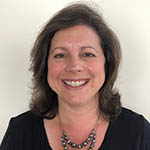Cognitive-behavioral couple therapy (CBCT) is a highly efficacious approach for assisting couples experiencing relationship distress. In addition, couple-based interventions often are effective for treating individual disorders. For more than a decade, researchers at UNC-Chapel Hill have been examining how to integrate partners into the treatment of eating disorders to improve treatment response. This webinar will provide an overview of these efforts, including: (a) how eating disorders present within an interpersonal context; (b) how interpersonal relationships can facilitate patients’ progress in treatment; (c) how to employ effective communication to counter significant avoidance present in eating disorders; and (d) how to guide couples in the implementation of behavior change consistent with recovery.
Sign Up for Our Newsletter
Get the latest updates on webinars, resources, and more.





